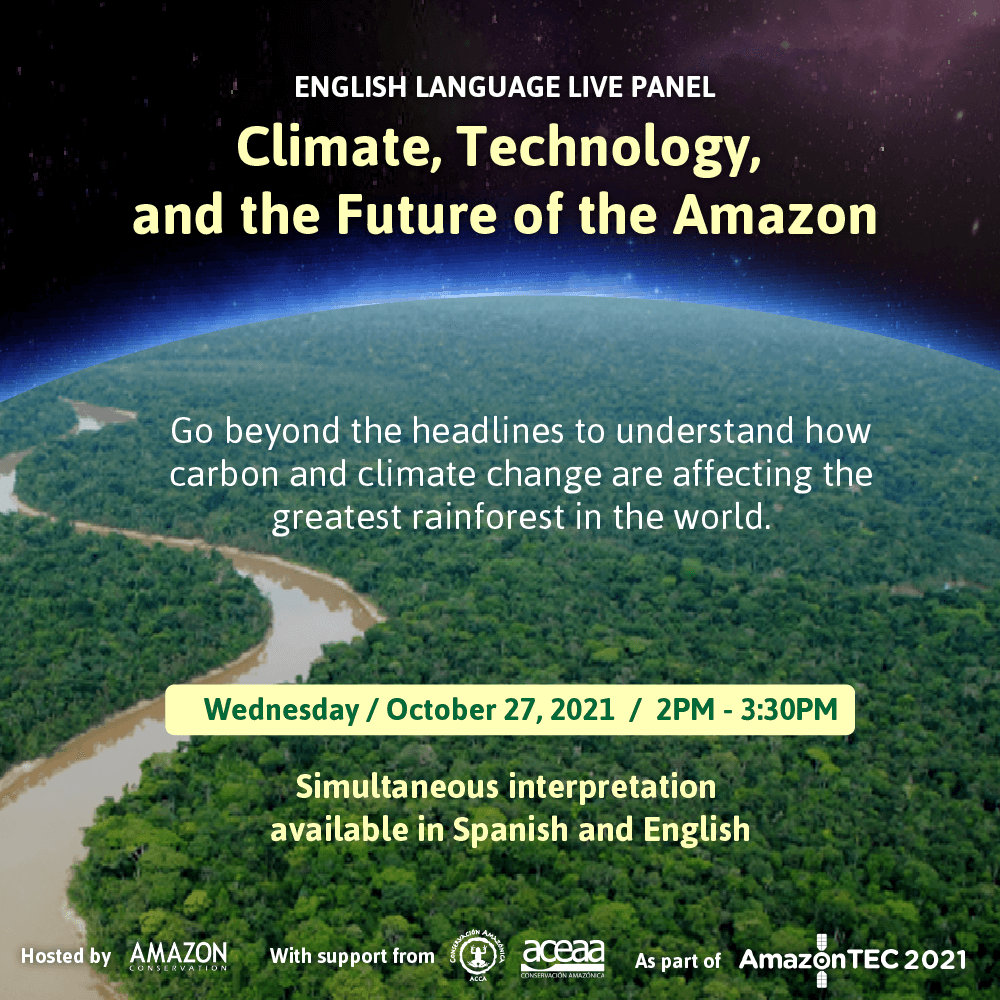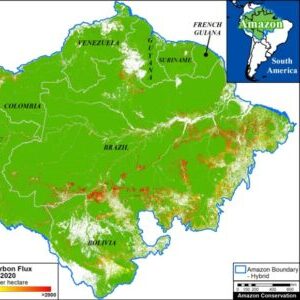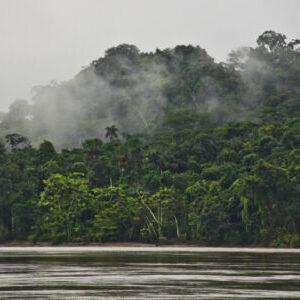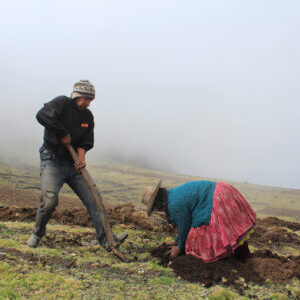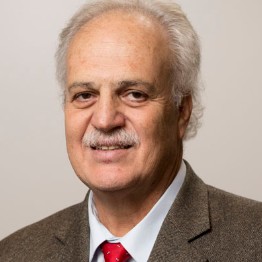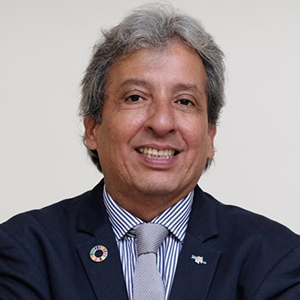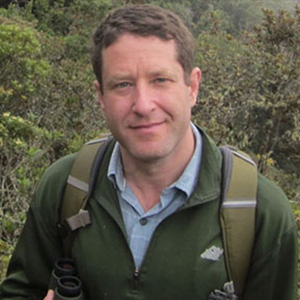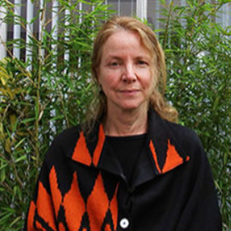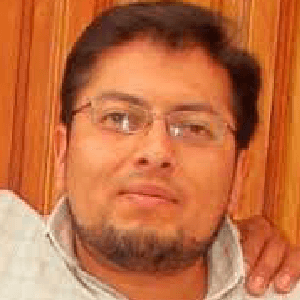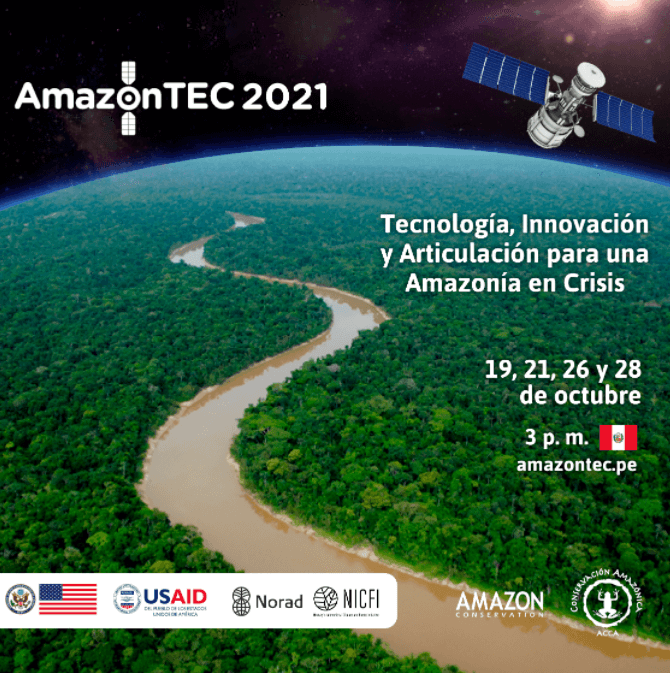John Beavers
John Beavers is the Executive Director of Amazon Conservation and is responsible for its overall leadership and management. John has spent his career focused on conservation in Latin America ranging from on-the-ground conservation in the Maya Forest of Guatemala, Belize and Mexico to strengthening conservation organizations across Latin America. Prior to starting with Amazon Conservation in 2019, he spent seven years leading Audubon's international conservation efforts to protect key bird habitats and biodiversity in Latin America and the Caribbean. While there, he launched Audubon’s first international conservation strategy to guide Audubon's efforts outside of the United States, and developed and led innovative projects, including a $2.6 million bird-based-tourism partnership with the Inter-American Development Bank (IDB), and a regional climate plan that linked conservation organizations across 12 countries. Previously, he worked for seventeen years with The Nature Conservancy in Latin America, and lived in Guatemala where he led the Conservancy’s Guatemala and Central America Programs and helped lead national level conservation finance and policy actions, including a $24.4M debt-swap between the Guatemalan and US Governments. John has a Master’s degree from the University of Massachusetts, Amherst in Natural Resource Economics and an undergraduate degree in Political Science from Rutgers University.
Carlos Nobre
Carlos A. Nobre is an Earth System scientist from Brazil. He graduated in Electronics Engineering from the Aeronautics Institute of Technology (ITA), Brazil, in 1974 and obtained a PhD in Meteorology from the Massachusetts Institute of Technology (MIT), USA, in 1983. He dedicated his scientific carrier mostly to Amazonian and climate science at Brazil’s National Institutes of Amazonian Research (INPA) and Space Research (INPE). He proposed almost 30 years ago the hypothesis of Amazon ‘savannization’ in response to deforestation. He was Program Scientist of the Large-Scale Biosphere-Atmosphere Experiment in Amazonia (LBA). He is a former National Secretary of R&D of Ministry of Science and Technology of Brazil and former President of the Federal Agency for Post-Graduate Education (CAPES). He is foreign member of the US National Academy of Sciences, member of the Brazilian Academy of Science and of the World Academy of Science. He was one of the authors of IPCC AR4 awarded with the Nobel Peace Prize in 2007. He is presently a senior researcher with the Institute for Advanced Studies, University of São Paulo and the creator of the Amazon Third Way-Amazonia 4.0 Initiative that seeks a new development paradigm based on a biodiversity-driven bio-economy utilizing modern technologies of the Fourth Industrial Revolution.
Manuel Pulgar Vidal
Manuel Pulgar-Vidal is the Leader of the Climate & Energy Global Practice of World Wild Fund for Nature International. As the former Minister of Environment of Peru, he has a long history of supporting conservation in the Amazon, including as President of the UN Climate Convention’s Twentieth Conference of the Parties (COP 20).
David Gibbs
David is a GIS Research Associate in Global Forest Watch (GFW). Although he works on a variety of research projects, his primary focus has been on how forests store, emit, and sequester carbon globally. Related publications include creating a global model of greenhouse gas emissions and sequestration by forests from 2001 to 2019 at 30-meter resolution, and globally mapping potential rates of carbon sequestration from forest regrowth. David has also contributed to the New York Declaration on Forests annual progress assessment—which tracks global progress in stopping deforestation—since 2018. He is now starting to work on tracking forest fragmentation using remote sensing.
Matt Finer
For the past two decades, Matt has been dedicated to investigating threats to the Amazon. As part of this effort, he has been especially focused on advancing the dynamic field of real-time, satellite based threats monitoring from deforestation and fires. Following years of Amazon-based work, Matt came aboard Amazon Conservation in 2013, and in 2015 launched MAAP (Monitoring of the Amazon Project) as the organization's dedicated real-time monitoring program. Under his leadership, MAAP has published over 130 high-impact public reports on critical topics including Amazon fires, illegal gold mining, illegal logging, expansion of the agricultural frontier, and road construction. He also works closely with colleagues in Amazonian countries to convert the technical findings into effective policy action. Matt received his Ph.D. from the School of Biological Sciences at Washington State University in 2003 and got his start as an undergrad in the Ecology and Evolution department at the University of Pittsburgh. Prior to joining Amazon Conservation, he was a Project Scientist for the Center for International Environmental Law (CIEL) Sustainable Loreto project and Staff Ecologist at Save America’s Forests. Matt received his Ph.D. from the School of Biological Sciences at Washington State University in 2003.
Carmen Josse
Carmen holds a PhD in Biological Sciences with a specialty in vegetation and biogeography. Her experience lies in producing and managing information on biodiversity to support its planning processes, management and conservation policies. Carmen handles methods and products for classification, mapping and evaluation of ecosystems at the national level and throughout Latin America. She has experience with georeferenced tools for evaluating the adaptation of ecosystems to climate change, quantitative analysis of threats and monitoring of conservation objectives.
Daniel Larrea
Daniel is the Science and Technology Program Coordinator with Conservación Amazonica-ACEAA, in Bolivia. His primary interests include the function, history and responses of flora and vegetation to human disturbances, which requires diverse types of biogeographical, ecological and management tools for biodiversity conservation. Previously, Daniel worked for the National Comptroller General (Contraloría General de la República), from 1999-2001, and the Amigos de la Naturaleza Foundation, from 2009-2014, and he has worked with Conservación Amazonica-ACEAA since 2015. He has been an environmental consultant for the Instituto de Ecología, Agua Sustentable, Sociedad Biodiversa, FUND-ECO and vice president of the Plurinational State of Bolivia, among others. In 2013, Daniel received the “Martín Cardenas” Award for Botany, awarded by the National Science Academy of Bolivia.
Marcos Terán
Trained as a biologist with a Master’s in Tropical Biodiversity Management and Conservation and an MBA specializing in project management. Marcos has a range of experience in research topics relating to biodiversity, ecology, natural resource management, and managing conservation spaces, as well as writing, monitoring, project evaluation and management, interdisciplinary group management, and strategic planning. He has been a part of and led multi-disciplinary working groups that have participated in planning programs and projects, biodiversity research, and natural resource management, the product of this collaborative work resulting in the publication of various scientific articles in national and international magazines. Marcos is also a member of several research networks as well as national and international forest management networks. Much of his professional experience comes from work related to indigenous territories and protected areas in the Bolivian Amazon, where he has coordinated and led various programs and projects that generated information and tools to strengthen the management of these territories. Currently, Marcos is the Executive Director of ACEAA and, along with a solid multidisciplinary team, moves forward actions and strategies that promote the conservation of one of the most important macroregions in Bolivia: the Amazon.
